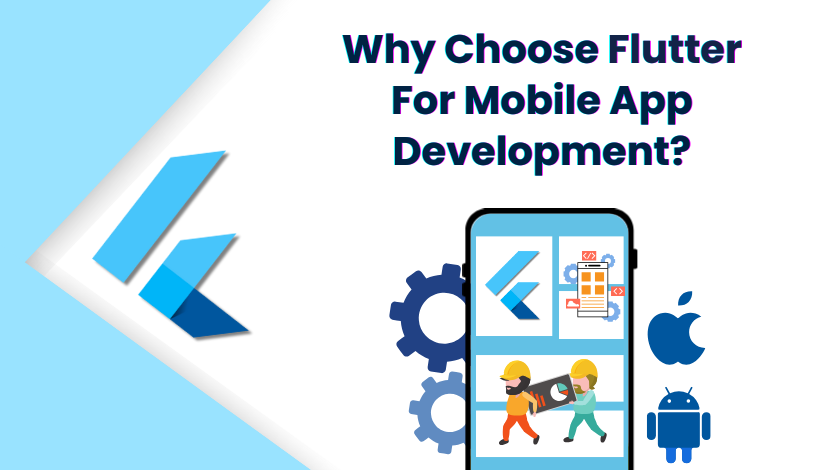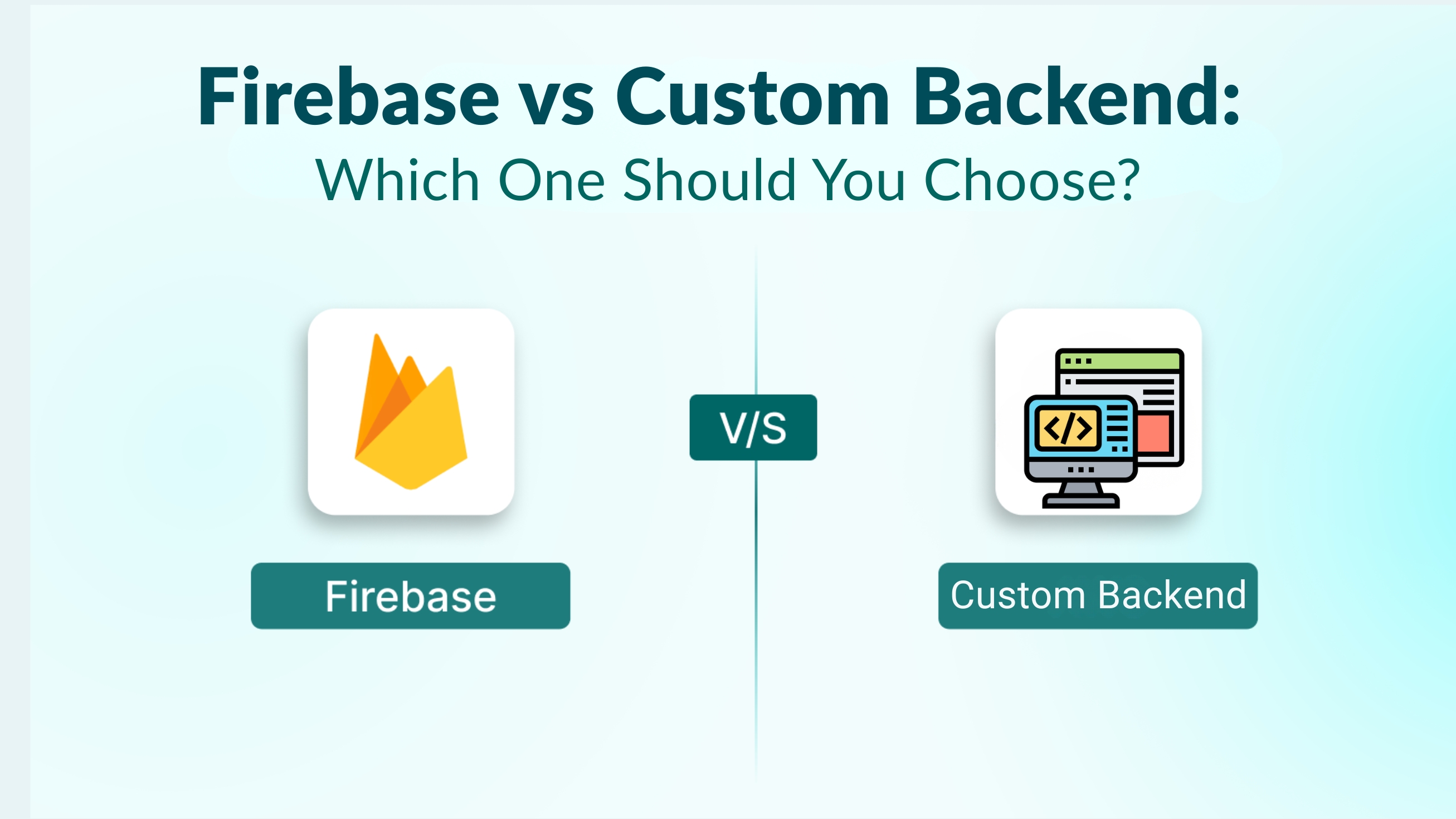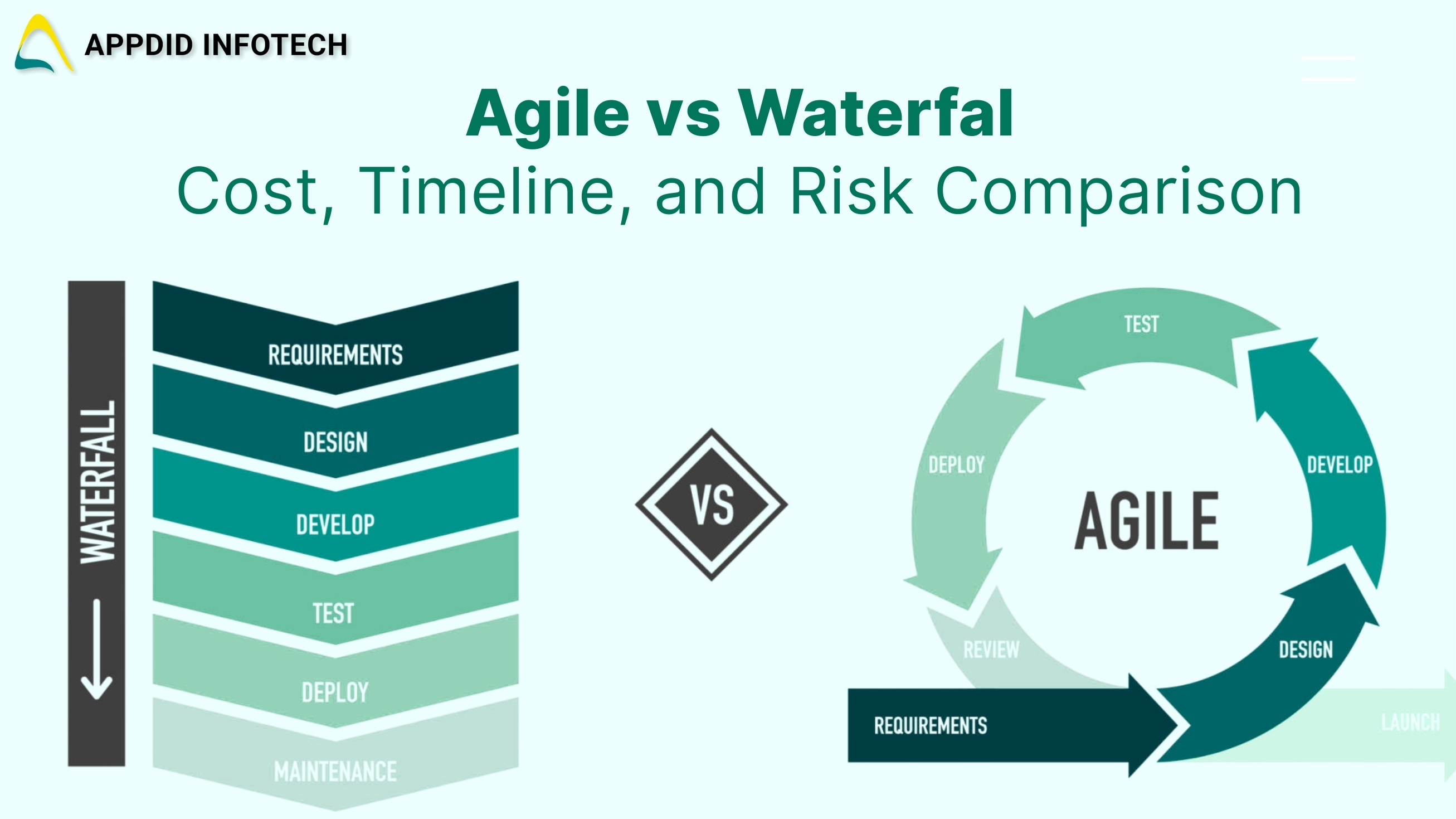In the fast-paced world of startups, every second counts. Entrepreneurs are often on the lookout for technologies that can accelerate their app development process, reduce costs, and deliver high-quality user experiences. Flutter, Google’s open-source UI toolkit, has become a favorite choice for startups. Here's why startups love Flutter for mobile app development:
1. Cross-Platform Compatibility
Flutter allows developers to write a single codebase that runs on both Android and iOS. This reduces development time, maintenance costs, and ensures consistency across platforms, which is especially important for startups with limited resources.
Startups typically need to move quickly to market. Having to manage two separate codebases for Android and iOS would be an inefficient use of time and resources. Flutter eliminates this issue by enabling the creation of cross-platform apps, meaning developers only need to write the code once, and it works seamlessly on both platforms. This can make a huge difference for startups that are still figuring out their business model and need to iterate quickly.
2. Faster Development Process
With Flutter’s "hot reload" feature, developers can instantly see the results of changes without rebuilding the entire app. This speeds up the development process, allowing startups to push their apps to market faster and iterate on them more frequently.
The "hot reload" feature makes testing and debugging easier, as developers can make changes in real-time and immediately see the impact. This accelerates the development cycle, allowing startups to push out updates faster, respond to user feedback, and maintain a high-quality app without wasting time. This feature is particularly beneficial for early-stage startups, where time-to-market is crucial.
3. Cost-Effective
By using a single codebase for both platforms, startups save on development and maintenance costs. Instead of hiring separate teams for Android and iOS, a single Flutter developer can handle both, making it an affordable option for resource-constrained startups.
Startups often operate on tight budgets and need to be strategic about their spending. Flutter’s cross-platform nature means that startups can cut down on costs related to development, testing, and maintenance. Additionally, Flutter allows developers to focus more on enhancing app features instead of dealing with platform-specific codebases, saving both time and money.
4. Beautiful and Customizable UI
Flutter offers an extensive library of pre-designed widgets that enable the creation of highly customizable, visually appealing UIs. Startups can create a unique and engaging user experience, helping their apps stand out in a competitive market.
For startups looking to make an impact with their mobile apps, user experience (UX) is a key factor. Flutter provides rich pre-built widgets, allowing developers to create polished, beautiful UIs. Whether it’s simple widgets for common tasks or complex customizations, Flutter can deliver smooth, visually stunning interfaces without compromising performance. The framework also supports Material Design and Cupertino, ensuring that apps adhere to design standards for both Android and iOS.
5. High Performance
Flutter apps are compiled into native machine code, which results in high performance. With direct access to the device’s hardware, Flutter provides a smooth and responsive experience that rivals native apps, making it a great choice for startups aiming for high-performance applications.
Flutter uses Dart, a language that compiles directly into machine code, enabling developers to write high-performance apps. Since Flutter bypasses the need for a bridge to interact with native components, it leads to faster app execution. This is especially important for startups aiming to provide smooth animations, transitions, and fluid user interfaces. Flutter ensures that the app runs efficiently across all devices, whether it's a low-end budget phone or a high-performance device.
6. Strong Community Support
Being open-source, Flutter has garnered a large, active community of developers. This vibrant ecosystem provides extensive resources, including libraries, plugins, and frameworks, which help startups solve challenges faster and more efficiently.
Startups often face challenges during app development, whether it's integrating third-party services, adding unique features, or troubleshooting issues. Flutter’s community-driven ecosystem provides a wealth of resources, such as libraries, plugins, and documentation, that developers can use to quickly solve problems. The Flutter community also contributes to the framework’s continued evolution, ensuring that startups have access to the latest updates and features.
7. Integration with Firebase
Flutter’s seamless integration with Firebase, Google’s mobile app development platform, makes it an ideal choice for startups. Firebase provides a wide range of services, such as authentication, real-time databases, and cloud storage, which are essential for building scalable mobile apps.
Firebase is a powerful backend-as-a-service (BaaS) platform, and Flutter’s integration with it is seamless. This combination allows startups to build apps that are scalable and robust. Firebase offers features like real-time databases, user authentication, push notifications, and cloud storage, which help startups build apps without worrying about backend infrastructure. This integration reduces development time and complexity, letting startups focus on their core app features.
8. Growing Popularity
Flutter is gaining widespread adoption, and many successful companies, such as Google Ads, Alibaba, and Reflectly, have built their apps with Flutter. This growing popularity ensures that startups investing in Flutter are choosing a framework that’s here to stay.
Flutter has been adopted by several major companies, validating its ability to build high-quality apps. As the framework continues to evolve and grow in popularity, startups can feel confident that it’s a stable and long-term solution. Its backing by Google also adds credibility and trust to the platform, making it a reliable choice for startups looking to build a solid, future-proof app.
9. Easy Testing and Debugging
Flutter offers tools that make it easier to test and debug apps, which is crucial for startups aiming to launch high-quality apps quickly. The framework’s testing features help ensure that your app works seamlessly across different devices and operating systems.
Testing is an essential part of the app development process, and Flutter makes it easier with its suite of testing tools. Developers can write unit tests, widget tests, and integration tests in Flutter. These testing capabilities allow startups to identify bugs early and fix them before the app goes live. Flutter’s debugging tools also ensure that developers can track down and resolve issues quickly, leading to a smoother launch process.
10. Future-Proof Technology
With constant updates and improvements from Google, Flutter is a future-proof technology. Startups don’t have to worry about the framework becoming obsolete soon, making it a secure investment for long-term app development.
Google has committed to the long-term development of Flutter, with regular updates and new features being added to the framework. This ongoing support ensures that startups investing in Flutter today will continue to benefit from future improvements. Moreover, as the tech industry evolves, Flutter’s flexibility and scalability make it adaptable to future trends and new devices.
FAQs About Flutter for Mobile App Development
1. What is Flutter and why is it popular among startups?
Flutter is an open-source UI toolkit by Google used for building natively compiled applications for mobile, web, and desktop from a single codebase. It’s popular among startups due to its cross-platform compatibility, faster development process, and cost-effective nature.
2. Is Flutter suitable for building high-performance mobile apps?
Yes, Flutter is highly suitable for building high-performance apps. Its direct compilation into native machine code ensures faster execution and smooth user experiences, making it ideal for startups aiming for high-quality mobile apps.
3. How does Flutter compare to other mobile app development frameworks like React Native?
Unlike React Native, which uses a bridge to connect JavaScript with native components, Flutter compiles directly to native machine code. This often results in better performance and smoother animations. Additionally, Flutter provides a more customizable UI, giving startups more design flexibility.
4. Can I use Flutter for both iOS and Android development?
Yes, Flutter allows developers to write a single codebase that works on both iOS and Android. This saves time and money, as startups only need one development team to manage both platforms.
5. How long does it take to build an app with Flutter?
The development time for an app using Flutter depends on the complexity of the app. However, due to its cross-platform nature and features like hot reload, development is typically faster compared to building separate apps for iOS and Android.
Why Choose Appdid for Your Flutter Development?
If you’re a startup looking to leverage the power of Flutter for your mobile app development, Appdid is here to help. We specialize in delivering high-quality mobile app solutions tailored to your specific needs, ensuring a smooth and efficient development process from start to finish.
Our team of Flutter experts is dedicated to helping startups like yours build beautiful, high-performing, and cost-effective apps that make a lasting impact. Whether you’re just starting out or need to scale your app, Appdid provides the expertise and support you need to succeed.
Contact Appdid Today!
Ready to bring your startup’s mobile app vision to life? Contact Appdid today and let us help you harness the full potential of Flutter to create an app that stands out and delivers exceptional value to your users.










